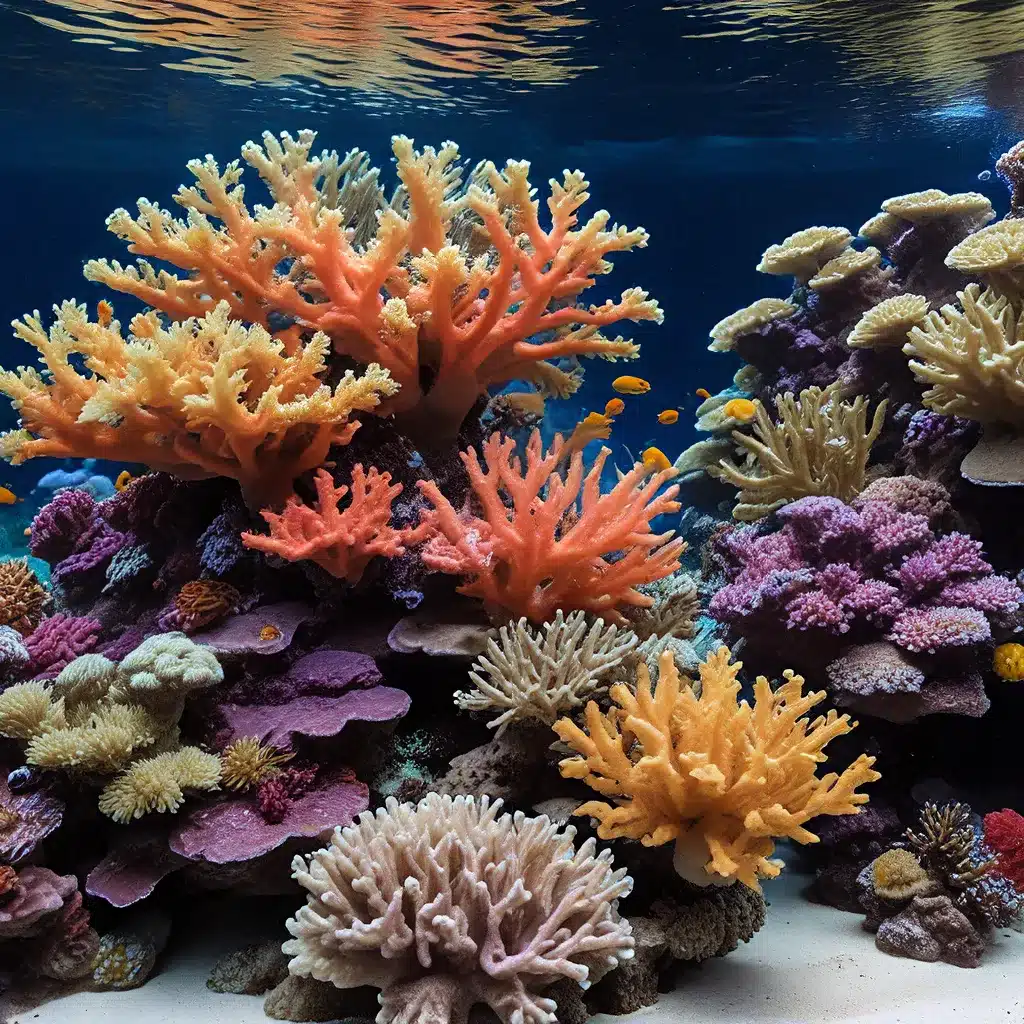
Maintaining a thriving coral reef aquarium is a captivating and rewarding pursuit for aquarium enthusiasts. These underwater ecosystems are not only visually stunning but also require meticulous care and attention to detail. In this comprehensive guide, we will unveil the secrets to creating and sustaining a healthy coral reef aquarium, covering essential aspects such as water management, filtration, and specialized aquascaping techniques.
Mastering the Art of Water Management
The foundation of a successful coral reef aquarium lies in the quality of the water. Achieving the right balance of parameters, such as pH, salinity, and temperature, is crucial for the well-being of your coral and marine life. One of the most important steps in water management is the use of reverse osmosis (RO) or RO/deionization (RO/DI) filtration systems.
RO and RO/DI filtration systems remove impurities, dissolved minerals, and contaminants from the water, ensuring a pristine environment for your coral reef inhabitants. By starting with high-quality, purified water, you can create the ideal conditions for your corals to thrive. Regular water testing and maintenance, such as partial water changes, are also essential to keep the water parameters within the optimal range.
In addition to water quality, the management of water flow and circulation is vital for coral reef aquariums. Proper water movement helps to distribute nutrients, gases, and heat evenly throughout the tank, mimicking the natural currents found in reef environments. Strategically placed powerheads, wavemakers, or other water circulation devices can create the desired flow patterns and ensure that your corals receive the necessary water movement for growth and development.
Harnessing the Power of Filtration
Effective filtration is another key component in maintaining a healthy coral reef aquarium. Mechanical, chemical, and biological filtration work together to remove waste, regulate water parameters, and create a stable environment for your corals and other marine life.
Mechanical filtration, such as protein skimmers and fine-particle filters, removes solid waste and organic matter from the water. This helps to maintain water clarity and reduce the buildup of harmful compounds that can compromise the health of your aquarium inhabitants.
Chemical filtration, often through the use of activated carbon or other specialized media, helps to remove dissolved organic compounds, toxins, and discoloration from the water. This process ensures that the water remains clear, free of impurities, and conducive to the growth of your coral and other marine species.
Biological filtration, facilitated by beneficial bacteria, plays a crucial role in the nitrogen cycle. These bacteria convert ammonia and nitrites into less toxic nitrates, which can then be managed through water changes or additional filtration methods. Maintaining a thriving biological filter is essential for the long-term stability and health of your coral reef aquarium.
Crafting Captivating Aquascapes
Aquascaping, the art of designing and arranging the underwater landscape, is a fundamental aspect of creating a stunning coral reef aquarium. The strategic placement of live rock, corals, and other aquatic plants can not only enhance the visual appeal of your aquarium but also provide the necessary substrate and hiding places for your marine inhabitants.
Live rock is a crucial component in coral reef aquascaping, as it serves as a natural substrate and provides a surface for the growth of beneficial bacteria and the attachment of corals. Carefully arranging the live rock to create caves, crevices, and ledges can mimic the natural reef environment and offer hiding spots for fish, shrimp, and other invertebrates.
Incorporating a variety of coral species, each with their unique growth patterns and coloration, can create a visually stunning underwater landscape. Positioning the corals in a way that allows for optimal water flow and light exposure can enhance their growth and vibrant hues. Additionally, the strategic use of aquatic plants, such as macroalgae, can help to maintain water quality and provide additional hiding spots for smaller creatures.
Embracing Sustainable Practices
As responsible aquarium enthusiasts, it is crucial to prioritize sustainable practices when setting up and maintaining a coral reef aquarium. This not only ensures the long-term health of your aquarium but also contributes to the preservation of these fragile ecosystems in the wild.
One such sustainable practice is the use of carbon dosing, a technique that involves the controlled addition of organic compounds to the aquarium water. This process encourages the growth of beneficial bacteria, which can help to remove nitrates and maintain a stable environment for your corals and other marine life.
Another sustainable approach is the consideration of water conservation. Minimizing water changes and maximizing the efficiency of your filtration system can help to reduce the overall water usage and lessen the environmental impact of your aquarium hobby. Investing in high-quality equipment and adhering to maintenance schedules can contribute to the long-term sustainability of your coral reef aquarium.
By embracing these sustainable practices and continuously educating yourself on the latest advancements in aquarium technology and care techniques, you can become a responsible steward of your coral reef aquarium, ensuring its health and prosperity for years to come.
Remember, a thriving coral reef aquarium is not only a stunning visual display but also a testament to your dedication and commitment to providing the best possible care for your marine ecosystem. By following the secrets revealed in this guide, you can unlock the true potential of your coral reef aquarium and create a captivating underwater haven that will inspire and delight both you and your aquarium visitors.
If you’re ready to take your coral reef aquarium to new heights, be sure to visit King Aquarium for a wide selection of high-quality aquarium equipment, live corals, and expert advice to support your aquarium journey.

